NASA Wallops Recovery Continues From Hurricane Sandy
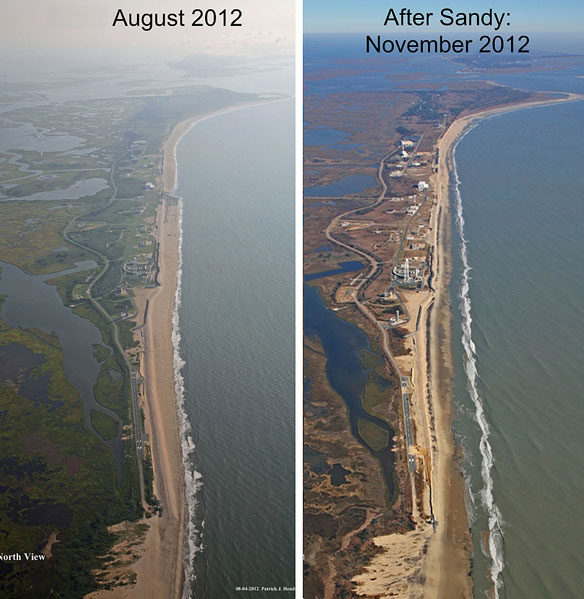
Hurricane Sandy removed about 700 feet of protective berm and about 20 percent of the beach protecting Wallops Island, home to NASA Wallops’ launch pads and launch support facilities.
More Storms Like Sandy? Arctic Ice Loss Amplified Superstorm Sandy Violence
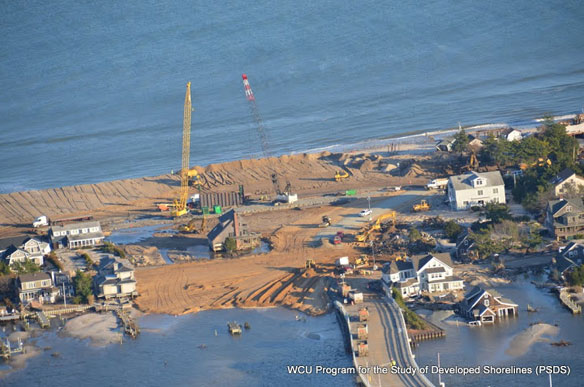
If you believe that last October’s Superstorm Sandy was a freak of nature, the confluence of unusual meteorological, atmospheric and celestial events, think again.
South Street Seaport, Lower Manhattan: A ‘Ghost Town’ Months After Hurricane Sandy
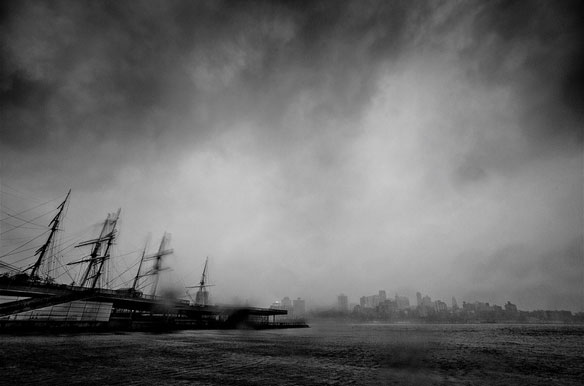
The historic cobblestone streets and 19th-century mercantile buildings near the water’s edge in lower Manhattan are eerily deserted, a neighborhood silenced by Superstorm Sandy.
Hurricane Sandy Was Second-Costliest In U.S. History, Report Shows
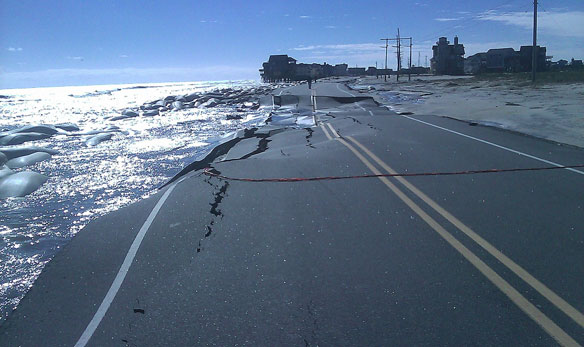
Superstorm Sandy was the deadliest hurricane to hit the northeastern U.S. in 40 years and the second-costliest in the nation’s history.
Retooling New York for Apocalyptic Storms
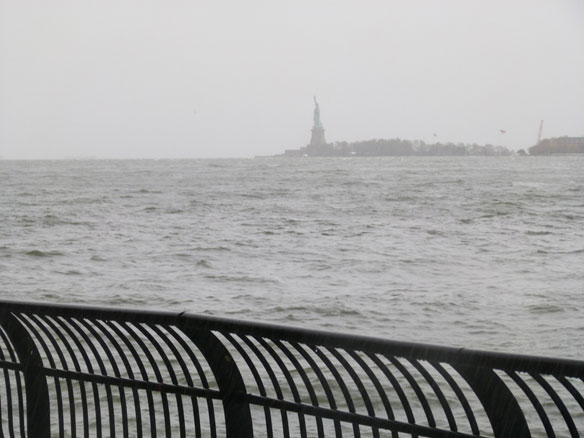
During World War II, a German U-boat made its way into New York Harbour. It fired two torpedoes at a British tanker, splitting the hull in three places and igniting it in flames. The captain and 35 members of his crew burned to death. Seventy years later, New York Harbour is Lower Manhattan’s first line of defence against another threat: the rising tides of the sea.
Congress passes $50.5B Superstorm Sandy aid bill
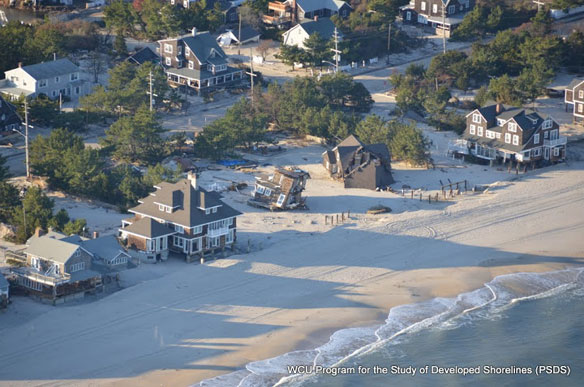
Three months after Superstorm Sandy ravaged coastal areas in much of the Northeast, Congress on Monday sent a $50.5 billion emergency relief measure for storm victims to President Barack Obama for his signature.
Shoring Up the Nation’s Crumbling Coastlines
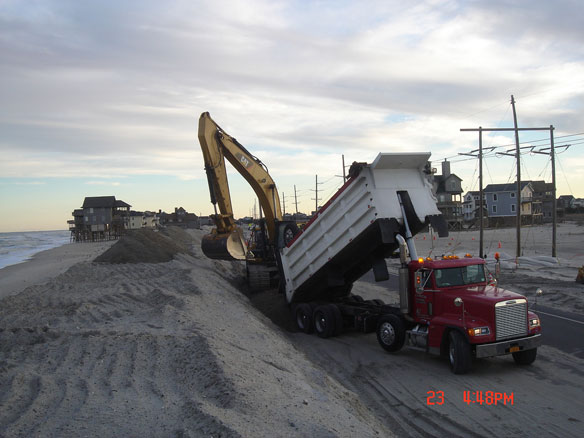
Hurricane Sandy pummeled the beaches of the Northeast, stripping away sand and dunes, and ploughing through seawalls. Can beaches be rebuilt to face fiercer storms and rising seas? And is there even enough sand to do it? Ira Flatow and guests discuss engineering the nation’s coasts for “the new normal.”
Risks of Hurricane Sandy-like Surge Events Rising
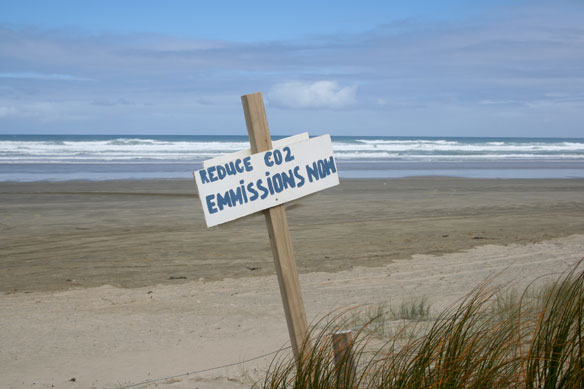
The track of Hurricane Sandy was unprecedented in the historical record of North Atlantic Ocean Basin hurricanes, and its deadly storm surge, is likely to become a more frequent event as the climate continues to warm due in large part to manmade greenhouse gas emissions.
Green Approaches to Water Gaining Ground Around World

After Hurricane Sandy swept through the northeast of the United States, millions of New Yorkers were left for days without electricity. But they still had access to drinking water, thanks to New York City’s reliance on protected watershed areas for potable water.
